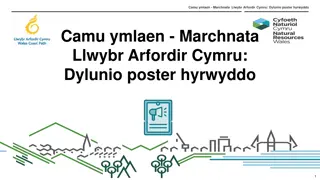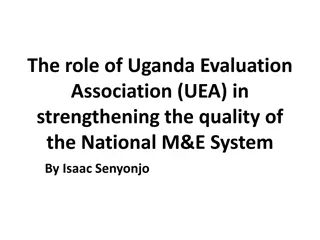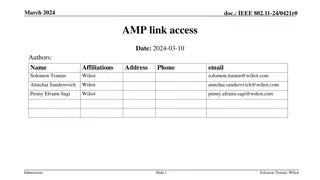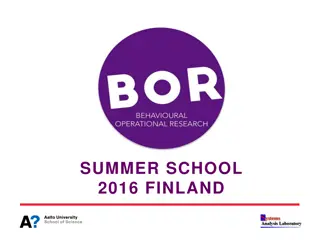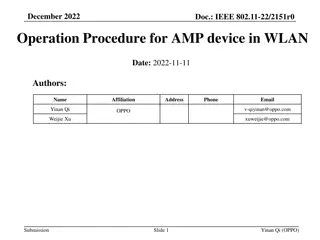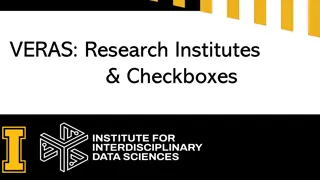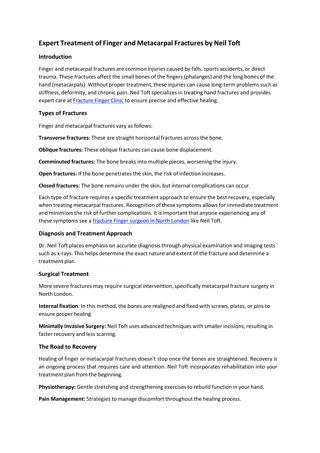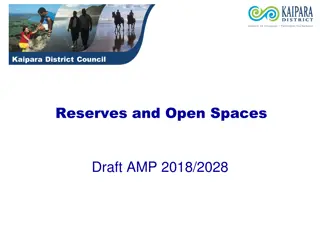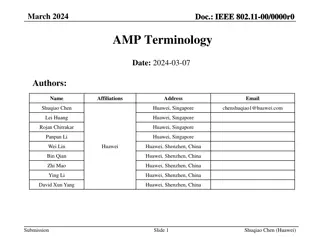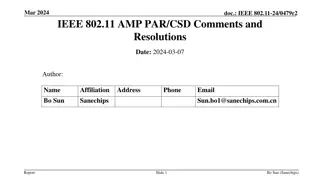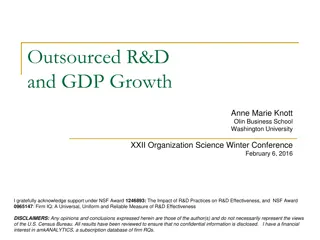
Religious Orientation and Coping in Third Culture Kids
Explore the challenges faced by Third Culture Kids (TCKs) in terms of identity development, reentry, and cultural adjustment, particularly focusing on the role of religious orientation and coping mechanisms in their mental health.
Download Presentation

Please find below an Image/Link to download the presentation.
The content on the website is provided AS IS for your information and personal use only. It may not be sold, licensed, or shared on other websites without obtaining consent from the author. If you encounter any issues during the download, it is possible that the publisher has removed the file from their server.
You are allowed to download the files provided on this website for personal or commercial use, subject to the condition that they are used lawfully. All files are the property of their respective owners.
The content on the website is provided AS IS for your information and personal use only. It may not be sold, licensed, or shared on other websites without obtaining consent from the author.
E N D
Presentation Transcript
Religious Orientation and Coping in Third Culture Kids KAYLA ZERBE
Introduction: What is a Third Culture Kid(TCK)? TCKs TCKs are individuals who have spent more than three of their developmental years outside of their passport country (Pollok & Van Reken, 2001). Types of TCK Military Diplomat Business Missionary/Nonprofit Keywords: Passport Country (Or Home Country ) Host Country Young Adulthood Reentry (Repatriation)
Introduction: Challenges for TCKs Identity Development (Bikos et al., 2009; Marcia, 1980; Smith & Kearney, 2016) Reentry (Bikos et al., 2009; Smith & Kearney, 2016) Transition away from home Cultural adjustment Loneliness, depression, and anxiety (Bikos et al., 2009; Davis et al., 2010, 2013; Kim et al., 2017; Smith & Kearney, 2016). Previous Qualitative Research (Bikos et al., 2009; Smith & Kearney, 2016) Religion and Reentry (Bikos et al., 2009; Smith & Kearney, 2016)
Introduction: Religious Orientation Intrinsic Religious Orientation Intrinsic Religious Orientation: Religion as end in itself (Allport & Ross, 1967) Internalized, provides motivation and meaning Extrinsic Religious Orientation Extrinsic Religious Orientation: Religion as means to an end (Allport & Ross, 1967) Less reflection and integration of beliefs Extrinsic Personal versus Extrinsic Social Prejudice (Allport & Ross, 1967; Johnson-Kwochka, 2020; Park, 2021) Mental Health (Park, 2021; S zer & Eskin, 2022; You & Lim, 2019)
Introduction: Religious Coping Role of Religion in Coping (Pargament et al., 1990, 1992, 2000). Meaning Control Comfort/Spirituality Intimacy/Spirituality Life Transformation Positive and Negative Religious Coping (Pargament et al., 1998)
Introduction: Religious Orientation and Coping Mental Health Mental Health Intrinsic Religious Orientation: Intrinsic religious orientation and positive religious coping versus extrinsic religious orientation and negative religious coping. Spiritually oriented coping Opportunity for growth Resolution of stressful event Happier, less depressed, more functional Extrinsic Religious Orientation: Higher stress (Navara & James, 2005) Feeling unable to handle situation Lower depression and anxiety Feeling they could change situation Not Not as opportunity for growth (Amadi et al., 2016; Khan & Watson, 2006; Lewis et al., 2005; Navara & James, 2005). (Pargament et al., 1992)
Hypotheses: Hypothesis 1 Hypothesis 1 TCKs who have an intrinsic religious orientation will engage in more positive religious coping. Hypothesis 2 Hypothesis 2 TCKs with an extrinsic religious orientation will engage in more negative religious coping.
Method: Participants Procedures 48 TCKs Recruitment 47 missionary kids, 1 unknown Religiously Affiliated University Age: International Missions Organization Mean = 20.15 years old Online Survey via Qualtrics Range = 18-23 years old Years since repatriation: Data analyzed using SPSS Mean = 2.73 years Correlations Range = 0-8 years
Method: Materials Religious Orientation Scale (ROS) Religious Orientation Scale (ROS) 14 items 2 subscales: Intrinsic (8 items) Extrinsic (6 items) 5-point Likert Scale Strongly disagree Strongly agree Cronbach s alpha: Intrinsic: 0.83 Extrinsic: 0.65 Brief RCOPE Brief RCOPE 14 items 2 subscales: Positive Religious Coping (PRC) Negative Religious Coping (NRC) 4-point Likert Scale Not at all A great deal Cronbach s alpha: PRC: 0.86 NRC: 0.85 (Allport & Ross, 1965) (Pargament et al., 2011 )
Results Table 1 Table 1 Descriptive Statistics and Correlations for Study Variables Descriptive Statistics and Correlations for Study Variables Variable Variable n M SD 1 2 3 4 1. Extrinsic Religious Orientation 48 2.72 0.65 - 2. Intrinsic Religious Orientation 48 4.15 0.66 -.24 - 3. Positive Religious Coping 48 2.75 0.51 -.02 .54** - 4. Negative Religious Coping 48 1.71 0.72 -.14 -.38** .12 - **p < .01 **p < .01 Significant Correlations: Positive: Intrinsic Religious Orientation & Positive Religious Coping Negative: Intrinsic Religious Orientation & Negative Religious Coping
Discussion: Hypothesis 1 Supported Supported TCKs who have an intrinsic religious orientation will engage in more positive religious coping. Identity Development: Developed religious/spiritual identity as source of stability in transition Use of positive religious coping facilitating intrinsic religious orientation Type of TCK: Primarily missionary kids Faith as Support: Religious security internal instead of on external circumstances
Discussion: Hypothesis 2 Not Supported Not Supported TCKs with an extrinsic religious orientation will engage in more negative religious coping. Lower scores for Extrinsic Religious Orientation Extrinsic Religious Orientation may be unrelated to religious coping and wellbeing (Park, 2021)
Discussion: Continued TCKs with an intrinsic religious orientation were less likely to engage in negative religious coping Application Application: Future Directions Future Directions Facilitating intrinsic religious orientation Mental Health Teaching positive coping strategies Cultural Identity & Transition Non-religious Coping Limitations Limitations: Types of coping Only missionary kids Quantitative research on TCKs Small sample size
References Allport, G. W., & Ross, J. M. (1967). Personal religious orientation and prejudice. Journal of Personality and Social Psychology, 5(4), 432-443. https://citeseerx.ist.psu.edu/viewdoc/download?doi=10.1.1.1030.947&rep=rep1&type=pdf Amadi, K. U., Uwakwe, R., Odinka, P. C., Ndukuba, A. C., Muomah, C. R., & Ohaeri, J. U. (2016). Religion, coping and in out-patients with depression or diabetes mellitus. Acta Psychiatrica Scandinavica, 113, 489-496. https://doi.org/10.1111/acps.12537 Bikos, L. H., Kocheleva, J., King, D., Chang, G. C., McKenzie, A., Roenicke, C., Campbell, V., & Eckard, K. (2009). A consensual qualitative investigation into the repatriation experiences of young adult, missionary kids. Mental Health, Religion & Culture, 12(7), 735-754. https://doi.org/10.1080/13674670903032637 Davis, P., Headley, K., Bazemore, T., Cervo, J., Sickinger, P., Windham, M., & Rehfuss, M. (2010). Evaluating impact of transition seminars on missionary kids depression, anxiety, stress, and wellbeing. Journal of Psychology and Theology, 38(3), 186-194. https://doi.org/10.1177/009164711003800303 Davis, P. S., Suarez, E. C., Crawford, N. A., & Rehfuss, M. C. (2013). Reentry program impact on missionary kid depression, anxiety, and stress: A three-year study. Journal of Psychology & Theology, 41(2), 128-140. https://doi.org/10.1177/009164711304100203 Kim, J. O., Pak, J., & Eltiti, S. (2017). Cultural differences in family affection and coping abilities for missionary kids. Journal of Psychology & Theology, 45(2), 79-91. https://doi.org/10.1177/009164711704500201 Marcia, J. E. (1980). Identity in adolescence. In J. Adelson (Ed.), Handbook of Adolescent Psychology (pp. 159-187). Wiley. Navara, G. S., & James, S. (2005). Acculturative stress of missionaries: Does religious orientation affect religious coping and adjustment? International Journal of Intercultural Relations, 29, 39-58. https://doi.org/10.1016/j.ijintrel.2005.04.004 Pargament, K. I., Ensing, D. S., Falgout, K., Olsen, H., Reilly, B., Van Haitsma, K., & Warren, R. (1990). God help me: Toward a theoretical framework of coping for the psychology of religion. Research in the social scientific study of the religion, 195-220. https://doi.org/10.1007/BF00938065 Pargament, K. I., Koenig, H. G., Perez, L. M. (2000). The many methods of religious coping: Development and initial validation of the RCOPE. Journal of Clinical Psychology, 56(4), 519-543. https://doi.org/10.1002/(SICI)1097-4679(200004)56:4<519::AID-JCLP6>3.0.CO;2-1 Pargament, K. I., Olsen, H., Reilly, B., Falgout, K., Ensing, D. S., & Haitsma, K. V. (1992). God help me (II): The relationship of religious orientations to religious coping with negative life events. Journal for the Scientific Study of Religion, 31(4), 504-513. https://doi.org/10.2307/1386859 Pargament, K. I., Smith, B. W., Koenig, H. G., & Perez, L. (1998). Patterns of positive and negative religious coping with major life stressors. Journal for Scientific Study of Religion, 37(4), 710-724. https://doi.org/10.2307/1388152 Park, C. L. (2021). Intrinsic and extrinsic religious motivation: Retrospect and prospect. The International Journal for the Psychology of Religion, 31(3), 213-222. https://doi.org/10.1080/10508619.2021.1916241 Pollock, D. C. & Van Reken, R. E. (2001). Third culture kids: The experience of growing up among worlds. Nicholas Brealey. Smith, V. J., & Kearney, K. S. (2016). A qualitative exploration of the repatriation experiences of US third culture kids on college. Journal of College Student Development, 57(8), 958-972. https://doi.org/10.1353/csd.2016.0093 S zer, O. T., & Eskin, M. (2022). Religiosity, identity confusion, and psychological well-being in Turkish university students: The moderating role of religious orientation. Journal of Religion and Health. https://doi.org/10.1007/s10943-022-01625-2 You, S., & Lim, S. A. (2019). Religious orientation and subjective wellbeing: The mediating role of meaning in life. Journal of Psychology and Theology, 47(1), 34-47. https://doi- org.ezproxy.messiah.edu/10.1177/0091647118795180
Welcome and thank you for listening! Questions?

